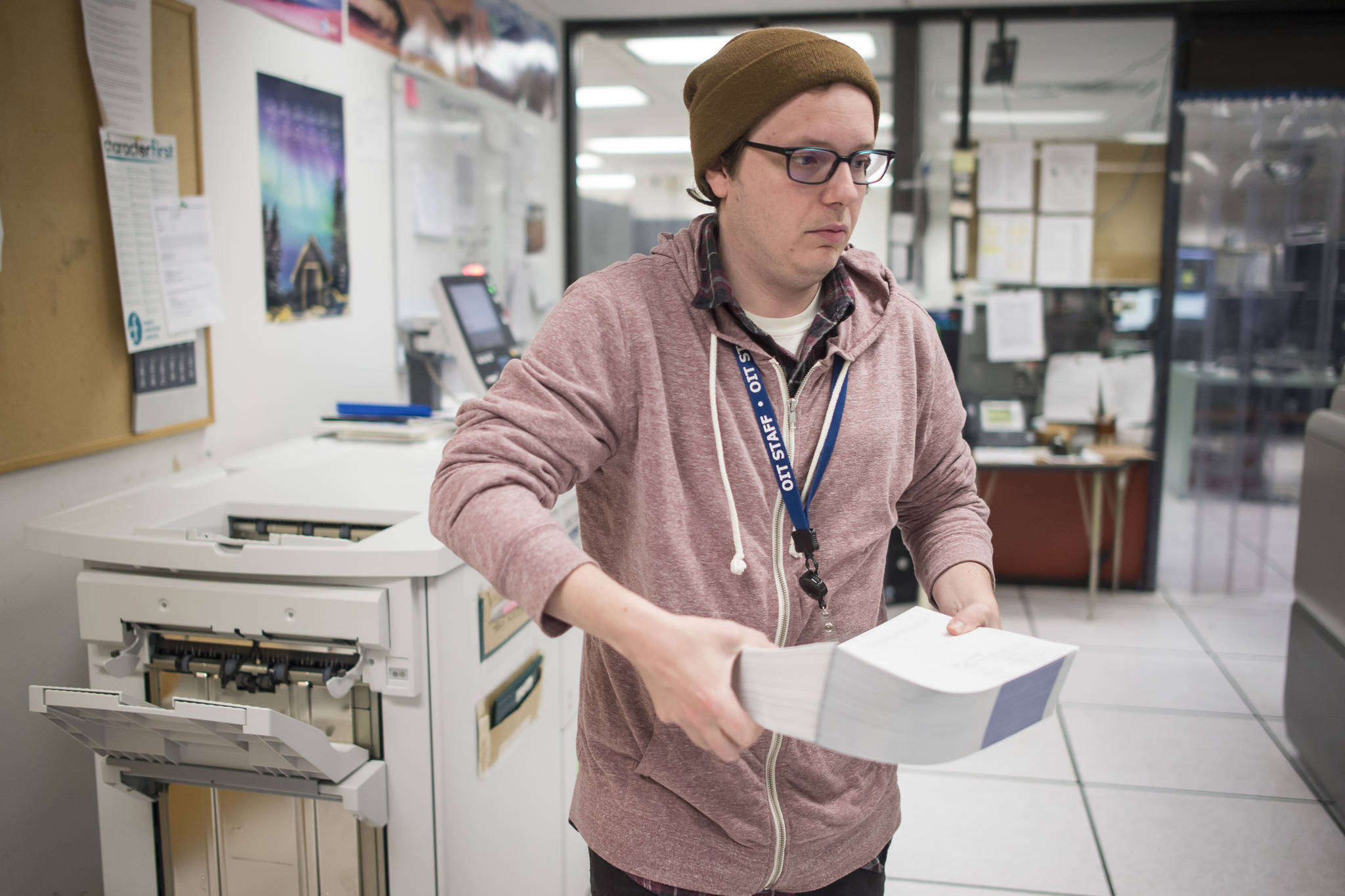Nothing grabs Alaskans’ attention like the Permanent Fund Dividend.
It took almost 2.5 hours for 130 Alaskans to testify for and against the super-size PFD as outlined in Gov. Mike Dunleavy’s Senate Bills 23 and 24, Tuesday night during a Senate State Affairs Committee meeting. The public was limited to one minute comments each. The State Affairs Committee listened to more than 120 testimonies on the super-sized PFD, on Thursday night too.
Sen. Mike Shower, R-Wasilla said the comments Tuesday were almost evenly split on the issue. Last week, the majority of comments, about two-thirds, were against the super-size PFD.
The majority of people opposing the bills were in favor of funding education instead of receiving a giant PFD.
“I feel like Dunleavy has tripped you up,” Kasey McNamee, a local teacher, told the State Affairs Committee. She pointed out how many people testifying in favor of the bills said they have used the PFD to pay for their children’s college. “Tuition will go up,” she said. “How are your children going to get a good education?”
McNamee said teachers are “too overwhelmed” and if class sizes continue to increase it will adversely impact education in Alaska.
Among those who testified was a group of six high school students from all over the state, who are in Juneau for an Alaska Youth for Environmental Action civics conference. Each one of them testified against the tandem of bills. They also spoke to the importance of funding education over the super-size PFD.
Eve Downing of Sterling said they thought it would be important to lend a student voice to the record.
“A lot of us just don’t think it will lead to a prosperous future for our state,” Downing said of the PFD, in an interview.
Jenna Stringer of Barrow High School elaborated.
“The adults ideas can get mushed up together,” Stringer said “It’s important for students to speak up and advocate for our communities.”
And many were in favor of the super-size PFD.
Andrew Navarro, a contractor from Wasilla, said “the PFD is very important to us,” and he supports the bills. “The government spends too much,” he said.
Natasha Lesko in Palmer is a small business owner.
“I have a huge part of my clientele depends on the PFD,” Lesko said. “It’s awesome for my small business. I am a firm believer it does build up the economy, especially the smaller businesses.”
Jennie Roller in Sutton supported the super-size PFD. She said the PFD was “unlawfully taken” when it was capped the last three years. Many supporters of SB 23 and 24 echoed this sentiment.
From 2016 to 2018, the PFD was capped and a portion of the Permanent Fund earnings were used to fund government. Dunleavy introduced SB 23 and 24 to payback the money Alaskans would have received had they been given a full PFD during those years. Often called the super-sized PFD, it would be paid back over the course of three years.
Alaskans who were eligible for the 2016 PFD would receive an additional $1,061 in their 2019 The retroactive PFD payment from 2017 would be $1,289 in 2020, and if you received your PFD in 2018 you would receive $1,328 in 2021.
After the meeting, Shower said they have received close to 1,000 public comments on SB 23, 24 and he believes it’s a good cross-section of Alaskans. That number includes written comments. He said people can still submit written comments to senate.state.affairs@akleg.gov.
• Contact reporter Kevin Baird at 523-2258 or kbaird@juneauempire.com. Follow him on Twitter at @alaska_kev.

